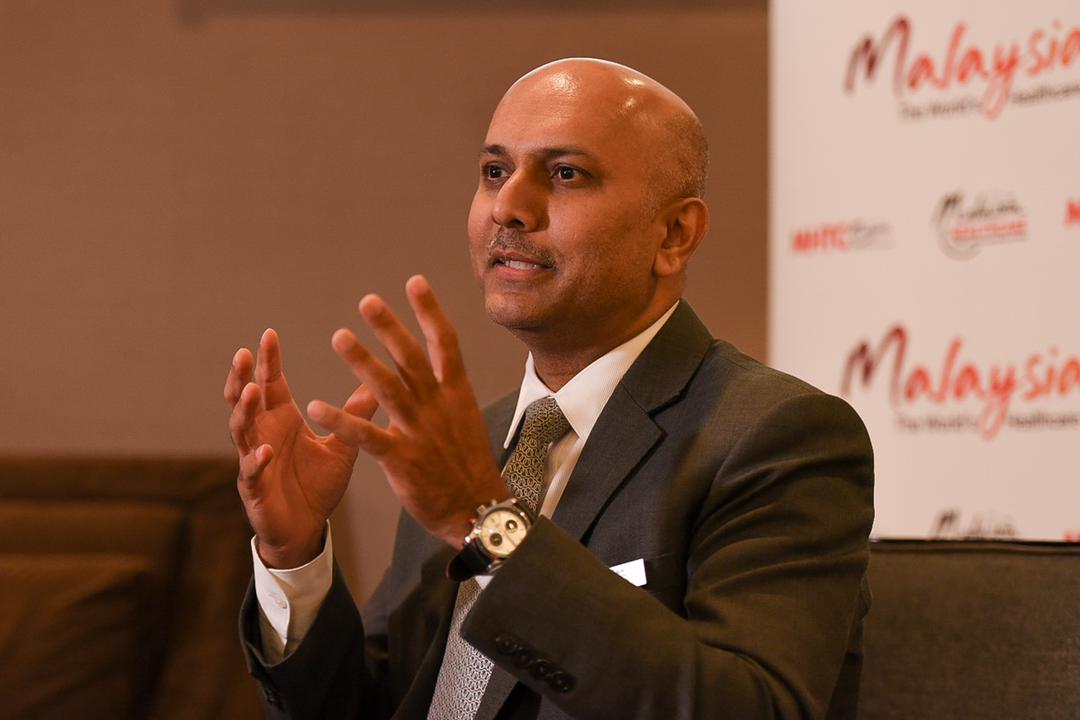KUALA LUMPUR, Oct 11 – The Malaysia Healthcare Travel Council (MHTC) is preparing for a rebound in medical tourism within the next few years, as more countries scale up vaccination to reopen safely.
The agency is seizing the moment to build on its over ten-year experience by forging resilience and ensuring the sustainable and inclusive recovery of the medical tourism sector.
Malaysia’s medical tourism revenue is estimated to generate between RM480 million and RM520 million this year, with MHTC’s line-up of regional cross collaborations and a five-year industry blueprint designed to stimulate medical travel and tourism recovery. In 2019, the country’s medical tourism generated RM1.7 billion in revenue from 1.22 million health care travellers.
A Blueprint For Recovery
MHTC chief executive officer, Mohd Daud Mohd Arif, said the Malaysia Healthcare Travel Industry Blueprint 2021-2025 is currently being finalised and will be launched this year to guide the industry’s recovery, which has the potential to contribute up to RM7 billion to the economy by 2025.
Moving forward, MHTC will continue to focus on its existing offerings, while also enhancing the Malaysia Healthcare experience through new, diversified segments for long-term industry sustainability.
Malaysia currently boasts a success rate of one in two fertility patients for in-vitro fertilisation. In addition, Malaysia provides advanced treatments, including oncofertility and artificial intelligence technology for fertility viability testing, strengthening the country’s position as the Fertility Hub of Asia.
Across the world, there are 30 fertility centres with International Reproductive Technology Accreditation Certification (RTAC) accreditation, of which eight are in Malaysia.
Over the last decade, the country has also gained popularity as the Cardiology Hub of Asia due to its expert medical fraternity and health care infrastructure.
The National Heart Institute (IJN) became the first hospital outside the United States to implant a Micra atrioventricular (AV) pacemaker, an implantable device for treating a slow heart rate via pacing. Such developments attract a niche group of patients to Malaysia who seek quality care that is both reliable and affordable.
Malaysia emerged as the third most prepared country in the Asia Pacific to battle cancer in a study conducted by The Economist Intelligence Unit published last year, and is gaining an international reputation as a Cancer COE.
“By leveraging on our core strengths and cross-collaborations through our public-private partnerships, we believe Malaysia will be further propelled into the global landscape as the leading global destination for health care,” Mohd Daud told CodeBlue in a recent interview.
Building Resilient Networks
To further foster collaborative approaches for industry recovery, this year will also see the return of insigHT – the region’s leading three-day medical travel market intelligence conference — centred on the theme ‘Forging Resilience’, which will be held virtually from November 16 to 18.
Organised by the MHTC, insigHT2021 will focus on how the global medical travel industry remains resilient to manoeuvre through uncertainties. “We expect to receive around 800 participants from more than 30 countries in the Asia Pacific, Europe, as well as the US, hosting more than 40 speakers from different regions,” Mohd Daud said.
The global event will feature speakers from the World Health Organization (WHO), Mayo Clinic, the United Nations World Tourism Organization (UNWTO), McKinsey & Co, International Air Transport Association (IATA), AirAsia Bhd, and the Tourism Authority of Thailand (TAT). For details and to register, visit www.mhtc.org.my/insigHT2021.
This runs concurrently with MHTC’s mission to revive the sector by building upon the existing confidence and trust in Malaysia as a safe and trusted health care travel destination in target markets such as Indonesia, China, Vietnam, Cambodia, Singapore, and Brunei.
“This will be done via publicity and branding campaigns, providing support, and facilitating end-to-end infrastructure including digital adoption, as well as cementing Malaysia as a thought leader in health care travel,” Mohd Daud said.
To achieve this, MHTC is working closely with member hospitals to determine other areas and markets to focus on, such as the Middle East.
Vaccine Tourism And Passports
Covid-19 vaccine tourism is a possible strategy as people seek to get their vaccines at a safe and trusted destination. Countries with an excess supply of vaccines would be able to use it as an opportunity to attract travellers. However, the priority remains within each nation to ensure that sufficient supply for the local population is met, Mohd Daud said.
“The safety of the people is our topmost priority, and we trust that the Ministry of Health (MOH) and other authorities will apply the right mechanisms to ensure the correct protocol is put in place where border reopening and vaccine tourism are concerned,” he said.
He adds that while it is feasible to introduce vaccine passports to facilitate international medical travel, the usage of vaccine passports is still being widely discussed globally by organisations such as the WHO.
A growing number of countries are considering turning to Covid-19 vaccine passports as a way of opening up and letting people travel. However, the WHO in April maintained that proof of vaccination against coronavirus should not be required for travel, amid uncertainty over whether inoculation effectively stamps out the transmission of the virus, in addition to equity concerns.
In the meantime, Mohd Daud said the adoption of telehealth services by MHTC member hospitals had enabled the country to stay ahead of the curve and strive for continuity of care for patients.
This ranges from enhancing hospitals’ telemedicine infrastructure, enabling medication delivery services, and enhancing cross-border digital payments.
“We are working on establishing a robust digital infrastructure that builds trust and confidence in the Malaysia Healthcare brand as international patients continue to receive on-demand care and consultation at the World’s Healthcare Marvel.
“This will further cement Malaysia’s position as a safe and trusted health care destination as we continue to build and facilitate a more sustainable and immersive health care travel industry.”









